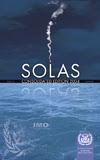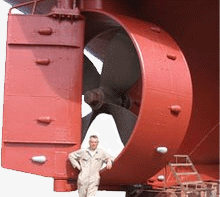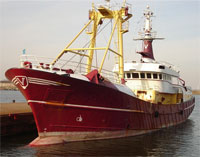 You will see a lot of yachts, even the very big ones (check out yachtworld.com), have space for only 12 guests. This is not done because the owner has few friends to take along. It's done to avoid more stringent safety requirements. Once a vessel makes an international voyage with more than 12 passengers, it becomes subject to SOLAS regulation and is considered a passenger vessel even if it is in use as a private yacht. The SOLAS Convention in its successive forms is generally regarded as the most important of all international treaties concerning the safety of merchant ships. The first version was adopted in 1914, in response to the Titanic disaster, the second in 1929, the third in 1948, and the fourth in 1960.
You will see a lot of yachts, even the very big ones (check out yachtworld.com), have space for only 12 guests. This is not done because the owner has few friends to take along. It's done to avoid more stringent safety requirements. Once a vessel makes an international voyage with more than 12 passengers, it becomes subject to SOLAS regulation and is considered a passenger vessel even if it is in use as a private yacht. The SOLAS Convention in its successive forms is generally regarded as the most important of all international treaties concerning the safety of merchant ships. The first version was adopted in 1914, in response to the Titanic disaster, the second in 1929, the third in 1948, and the fourth in 1960.Passenger vessels are subject to very extensive safety regulations in regards to fire safety, navigation equipment, live saving equipment and more.
When we started asking around, many people recommended us not to design for more than 12 passengers because of the extra cost involved with regulatory compliance. But with several owners, we felt that 12 passengers isn't very much and this limitation would limited the usability of our yacht considerably (and its resale value :-) ). Moreover, when we started to look into the SOLAS requirements, it turned out that they were very much common sense and something we'd like to build into our yacht regardless of the requirements.
 For instance, what's wrong with using fire-resistant walls between cabins and have a fire detection and protecion system that works automatically and uses an environmentally friendly product? Or use enough watertight doors so hitting the rocks won't sink the ship? Or have enough live vests and life rafts on each side of the ship with a release system that even grandma can use?
For instance, what's wrong with using fire-resistant walls between cabins and have a fire detection and protecion system that works automatically and uses an environmentally friendly product? Or use enough watertight doors so hitting the rocks won't sink the ship? Or have enough live vests and life rafts on each side of the ship with a release system that even grandma can use?So, we'll just stick to SOLAS and be safe! I'd hard to understand why anybody spending a few million on a serious yacht would not make the extra investment in safety but I guess they haven't heard the line 'if you think safety is expensive, try an accident'.
SOLAS compliance is enfored by the flag state, in our case it will be Panama. We plan to hire ABS (American Bureau of Shipping) to review and approve all our plans to make sure we meet SOLAS requirements and conduct the actual survey.


No comments:
Post a Comment